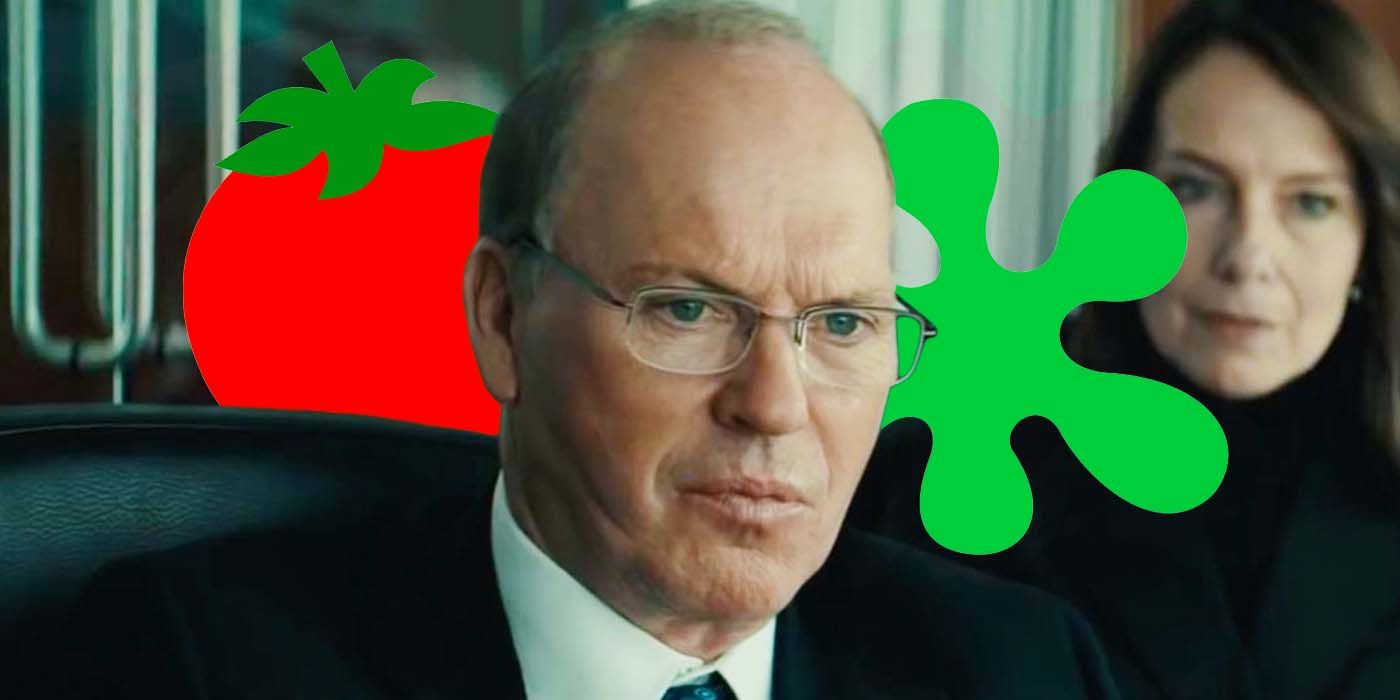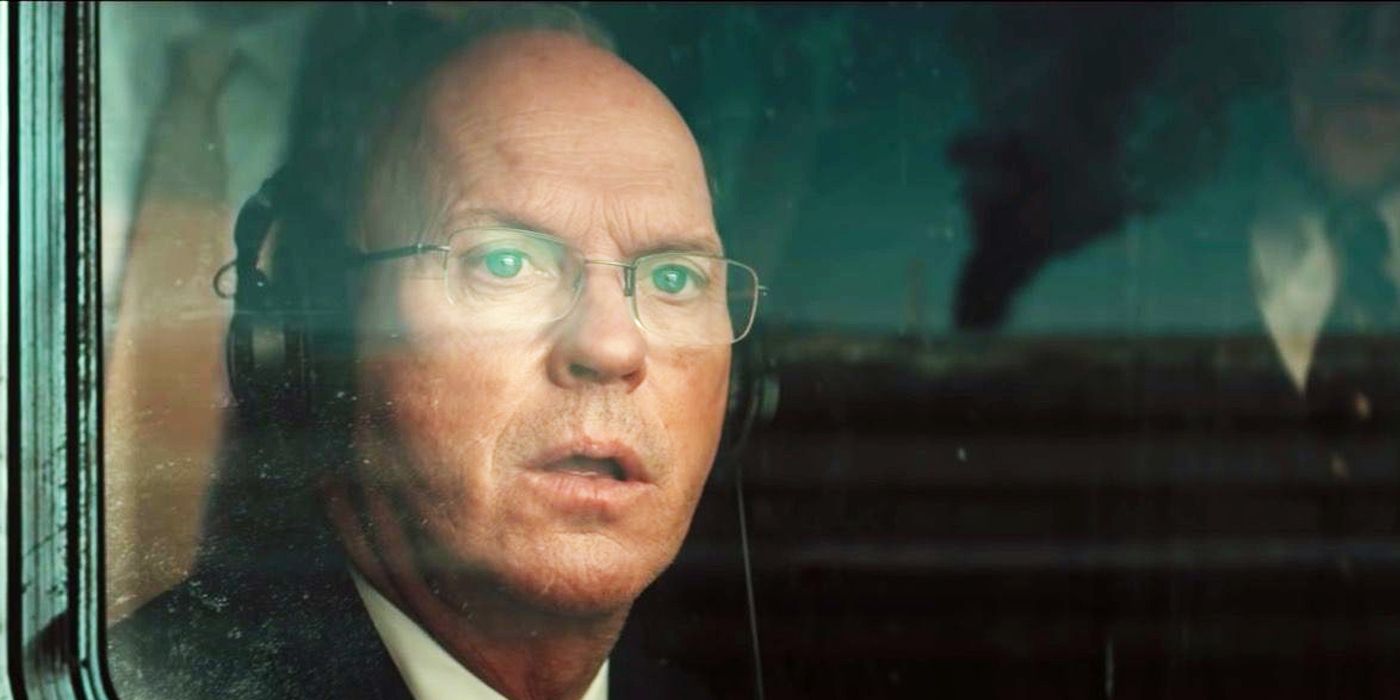
So far, reviews for Netflix's Worth have been fairly mixed, with critics largely praising the film for respecting its serious political subject matter while lamenting the story's overall lack of direction. On the whole, the reviews skew positive, with a Rotten Tomatoes rating above 70%. However, while the number rating for Worth is fairly impressive, the content of the positive reviews shares similar complaints with the film's negative reviews. This is to be expected for any film based on a true story, as the movie is judged not only on its cinematic merits but on its factual authenticity as well. For Worth, a movie about a September 11th fund, the stakes are even higher.
Directed by Sara Colangelo (The Kindergarten Teacher), Worth is a deeply emotional drama centered on the real-life creation of the September 11th Victim Compensation Fund (VCF), a fund that's still active to this day. As many reviewers have noted, the central question asked by Worth is: what is the value of a life? Through Kenneth Feinberg (Michael Keaton), the 9/11 fund's pro-bono legal head, the process of answering that question is explored -- a process aided and obstructed by an ensemble cast of real-life characters and fictional composites.
The film's contemporary feel compounded by the release date's closeness to the 20th anniversary of 9/11 makes Worth a difficult movie to critique wholly objectively, let alone watch. No doubt, differences in opinion and political sensibilities are a divisive point with this film, though surprisingly most reviews released thus far have been fairly reasonable and mild-mannered. For the most part, critics enjoyed the actors' performances, namely that of Keaton and Tucci. Those who enjoyed the film seemed particularly impressed by Colangelo's ability to deftly weave an engaging narrative without disrespecting its subject matter. With that in mind, here's what some of the positive Worth reviews are saying:
"What is a life worth? That moral dilemma looms large throughout this brilliantly acted, thoughtful feature that’s based on the troubling realization by Feinberg and his boss Camille Biros (Amy Adams) that a pat formula is insufficient when placing value on the life of a loved one. Colangelo has navigated tricky material before (“The Kindergarten Teacher”) and while screenwriter Max Borenstein plays by the rules a too closely near the end, Colangelo nudges the story and its actors — including Stanley Tucci as a skeptic to the government’s Victim Compensation Fund — to a higher, sometimes even profound, level."
"For all the ways in which it might give short shrift to the politics or policy of the fund, “Worth” is uncommonly moving by the standards of biopics and certainly by the standards of movies that risk addressing 9/11 so overtly."
"Whereas many directors would ratchet this high-stakes drama up as high as possible, Colangelo plays it pretty cool. Never does she sentimentalize, pander for audience sympathy or go for easy shots. It may not be easy for a man in his mid-50s to change his ways, but Feinberg is willing to listen and learn, a good trait to have at any age."
"It’s to 'Worth’s' credit that in its depiction of a couple of the families... there are complexities no three-act message in connecting is going to solve. What we’re left with is, thankfully, sharp exchanges about loss and conscience, a director’s sincere approach to potentially melodramatic material, and in-the-moment actors like Keaton, who makes the humbling weight of adding up lives into the stuff of compellingly sober contemplation."

While some critics enjoyed Colangelo's storytelling approach to depicting the creation of the VCF, others found the film to be either cheaply melodramatic or spread too thin in trying to keep tabs on the story's large cast. Despite the film's fairly clear, compelling, straightforward premise, those who didn't enjoy Worth found it to be narratively unfocused and undercooked, at least script-wise. Others who took offense -- namely to the screenplay's use of the "race-against-the-clock" movie device as a cliché means to escalate tension -- found Worth's ending to be cheap and unearned. Here are the more negative reviews:
"On paper, Worth is a solid film: the performances are strong, the premise is unique, and Colangelo's direction is fantastic. Yet, somehow, the end product falls short of the sum of its parts. There are brilliant moments sprinkled throughout the movie, including some truly inspired directorial choices; unfortunately, the story — written by Max Borenstein — is unfocused and lacks a coherent arc."
"If the film exists to sell us on how great the fund was, it blew it, because we’re left with troubling and unanswered questions. If the film exists to raise those questions, it cops out by resorting to treacly melodrama. And it cannot effectively do both."
"Making things even stranger, the race-against-the-clock structure... is exactly the kind of dehumanizing and trite framework that the story’s content rails against. If victims shouldn’t be numbers plugged into a spreadsheet, why should they live as a percentage on a whiteboard in a movie? Why should they exist as a plot engine hoping to make audience members tense, thinking 'Oh ho ho, they’re not going to make it!' until a last-minute reveal?"
"Keaton ladles on the Massachusetts accent a bit too thick, but he’s always a compelling screen presence and he turns in fine work, as do Tucci, Ryan and the strong supporting cast. 'Worth' falls just short of having enough strength in the screenplay to warrant a recommendation."
Ultimately, the critical consensus on Worth seems to be split between enjoying or detesting the film's direction in weaving together such a complex network of bureaucratic relationships and events. On the whole, most critics -- of both positive and negative reviews -- gave Worth credit for attempting to respectfully detail the real-life events of the VCF, all while asking a genuinely compelling question about the measurable value of human life. If anything, the split critical reactions only offer further reflection of the turbulent post-9/11 era, to which Worth serves as a timely testament.
No comments:
Post a Comment